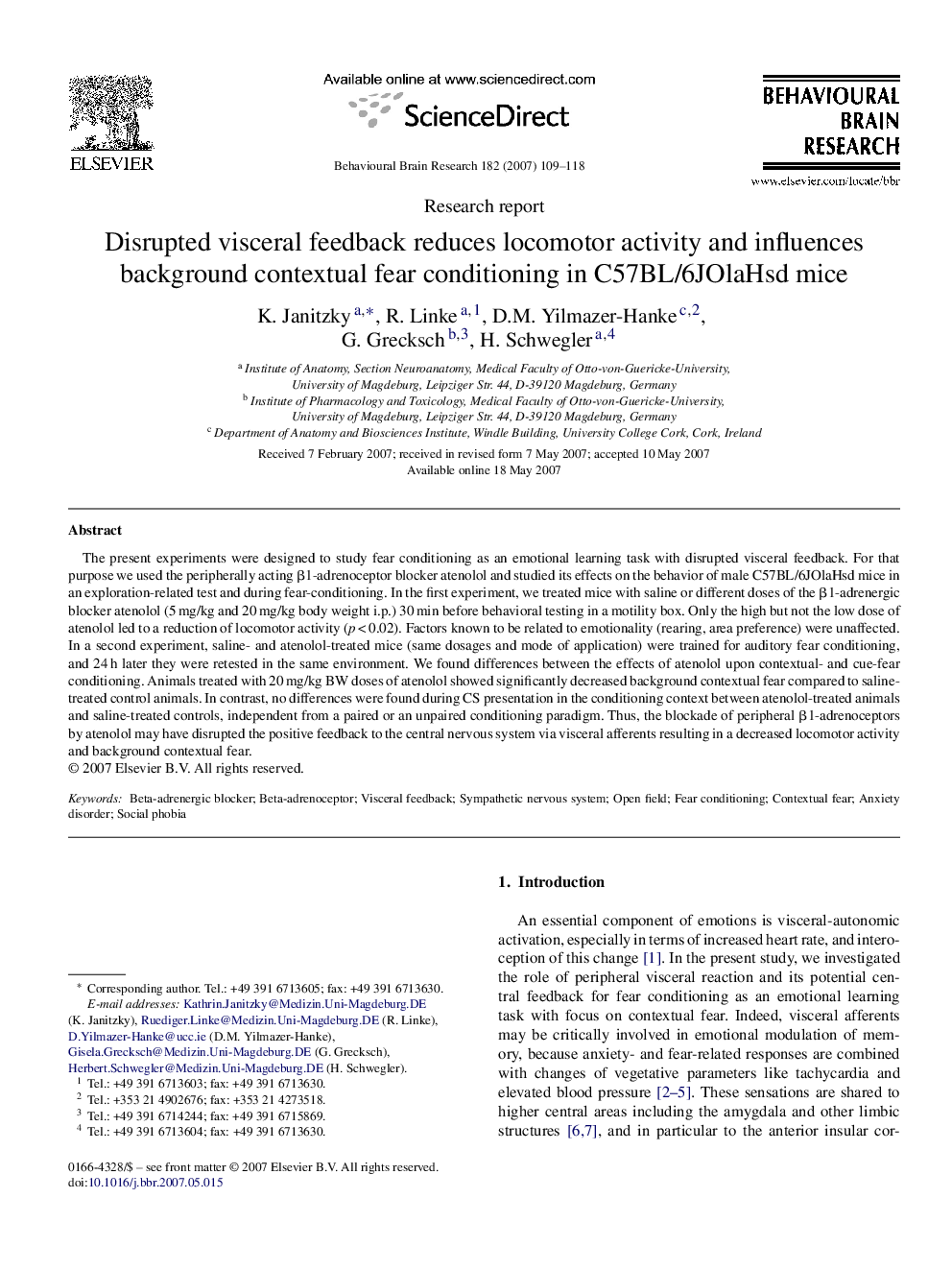| Article ID | Journal | Published Year | Pages | File Type |
|---|---|---|---|---|
| 4315592 | Behavioural Brain Research | 2007 | 10 Pages |
Abstract
The present experiments were designed to study fear conditioning as an emotional learning task with disrupted visceral feedback. For that purpose we used the peripherally acting β1-adrenoceptor blocker atenolol and studied its effects on the behavior of male C57BL/6JOlaHsd mice in an exploration-related test and during fear-conditioning. In the first experiment, we treated mice with saline or different doses of the β1-adrenergic blocker atenolol (5 mg/kg and 20 mg/kg body weight i.p.) 30 min before behavioral testing in a motility box. Only the high but not the low dose of atenolol led to a reduction of locomotor activity (p < 0.02). Factors known to be related to emotionality (rearing, area preference) were unaffected. In a second experiment, saline- and atenolol-treated mice (same dosages and mode of application) were trained for auditory fear conditioning, and 24 h later they were retested in the same environment. We found differences between the effects of atenolol upon contextual- and cue-fear conditioning. Animals treated with 20 mg/kg BW doses of atenolol showed significantly decreased background contextual fear compared to saline-treated control animals. In contrast, no differences were found during CS presentation in the conditioning context between atenolol-treated animals and saline-treated controls, independent from a paired or an unpaired conditioning paradigm. Thus, the blockade of peripheral β1-adrenoceptors by atenolol may have disrupted the positive feedback to the central nervous system via visceral afferents resulting in a decreased locomotor activity and background contextual fear.
Keywords
Related Topics
Life Sciences
Neuroscience
Behavioral Neuroscience
Authors
K. Janitzky, R. Linke, D.M. Yilmazer-Hanke, G. Grecksch, H. Schwegler,
